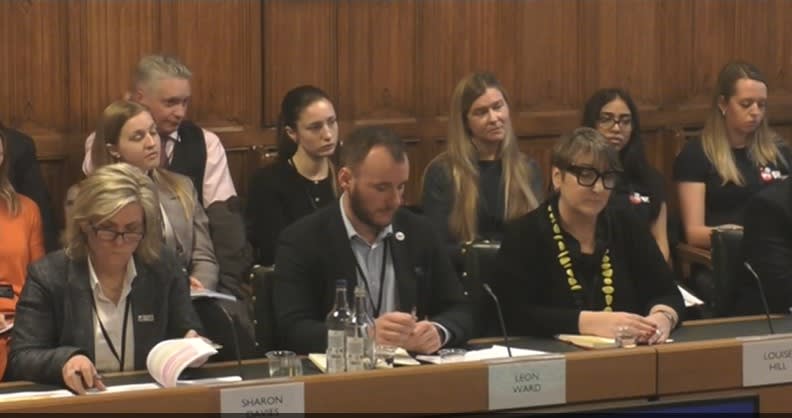A number of advocates have called on the government to prioritise financial education in primary schools from a younger age, stating it is currently in a “perilous state”.
Earlier this week (January 30), Louise Hill, chief executive officer and co-founder of Go Henry, gave evidence to the Education select committee’s inquiry into strengthening financial education.
Financial education has been part of the national curriculum for council-run secondary schools since 2014, but academies and free schools can opt out of teaching it.
Speaking at the session, Hill said: “When we look at where we are today in terms of education provision, and the evidence from young people leaving education in terms of whether they remember having received financial education whilst they were at school – it’s in a pretty perilous state.”
She said 60 per cent of children do not remember having received financial education and when you look at how many children understand interest rates it’s sub 40 per cent.
“We see schools that are doing this and delivering this information incredibly well,” she said.
“Sometimes internally, sometimes using the resources of some of the other panellists here, or using other organisations that come in to deliver the education to support teachers, but it is not consistent.”
Hill explained that consistency is the most important thing which needs to be addressed.
“I hate to use the overused phrase of postcode lottery, but it really does depend which type of school you go to and where you live – be that geography or which socio demographic group you belong to – as to what the likelihood is of you receiving any sort of financial education whilst you’re at school, and that can’t be right,” she said.
“That then impacts life outcomes for those young people as they go on to become adults.”
Golden opportunity
Additionally, Leon Ward, CEO of MyBnk, who also gave evidence, argued financial education is not a particularly controversial issue.
“Everybody agrees it’s a good thing, everybody wishes they had it and most people say I could do with it now and I wish my kids had it,” he said.
“Financial education and financial literacy is a lifelong skill. You’re not expected to know and learn everything at primary or secondary school but what it’s about – as with all education is – putting in the foundation building blocks for schools and for children to be able to understand what’s being taught to them.”
Ward argued there is a “golden opportunity here” where the prime minister has announced ambitions for compulsory maths up to age 18.
“Anything that drives up financial education is a good thing. The challenge I would have with it is most people don’t actually use lots of core maths skills when looking at financial education because there are tools out there that do it for you.
“The banking apps now allow you to do your budget but it’s about the discipline of doing the budget.”
He explained that often, you do not actually need to do the mathematical calculation yourself and that’s important because if you bind financial education into maths solely then it runs the risk of turning off half the country.
“We know that adult numerical illiteracy is quite high and financial literacy across the generations is pretty poor. One of the many challenges is that we want teachers to deliver this education but their own financial literacy is very poor.”
MyBnk research showed that teachers think on average they need about 12 days to learn the financial education curriculum that they go into schools and teach.
‘Left behind’
Meanwhile, Sharon Davies, CEO of Young Enterprise, said there is a link to maths and numeracy, but the mindset and thinking about emotions, risks and benefits to those choices is a critical element.
“Financial education has remained static over the past 10 years despite it being statutory on the national curriculum, but we could use this opportunity at whatever point we seek to bring primary into the curriculum as other nations have,” she said.
In a recent APPG inquiry, three in four teachers highlighted that teachers should play a leading role in delivering financial education.
Meanwhile, 70 per cent of primary school teachers surveyed by EverFi in 2020, stated financial literacy wasn’t given enough importance in schools and 82 per cent considered teaching financial education as being very important.
“We’re not capitalising from this huge amount of opportunity we have. There are over 100 financial education programmes operating across the UK and essentially that’s because we’re in a system where the prevalence on the curriculum hasn’t been given the priority that it needs, and teachers haven’t been given the teeth, the guidance and the support on the curriculum,” Davies said.
Additionally, the risk of not pursuing this could mean children are left behind, according to Hill.
“I had a piggy bank – my dad took me to the bank and I got a bank book,” she said.
“That’s not how money works today. It’s a much, much more complex network of systems and processes and financial products, and we need to equip our kids with the life skills to cope with that as they leave education. We’ve already left them behind, and we need to address them.”
Davies added: “It needs to start at an early age for all of the reasons that’s been discussed before and there’s a really great opportunity here to explore the role of financial education.
“We need to be involving teachers, we need to be trusting them professionally, they know their learners better than anybody to be able to adapt the content.”
The evidence session follows GoHenry’s push to level up financial education in the UK, with its Parliament petition to #makemoneycount having recently reached 10,000 signatures, meaning it is awaiting a formal response from the government.

